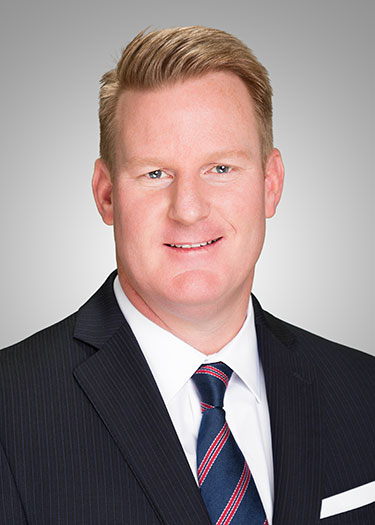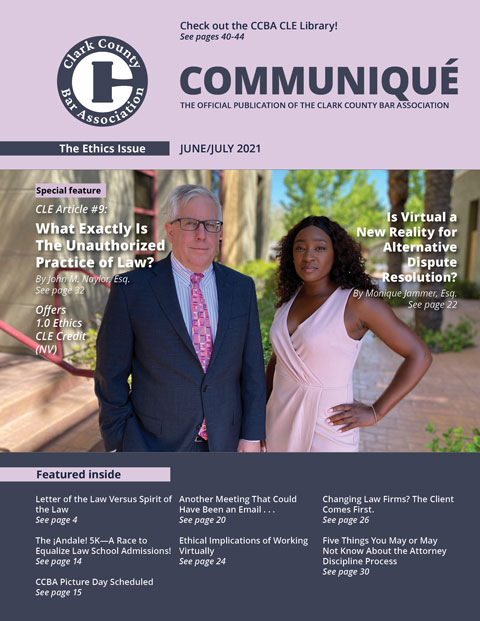Summer is upon us and the days are long. Like me, I hope the CCBA membership is enjoying the warm Vegas sun and the return to capacity.
This double edition of the magazine includes six featured articles related to ethics. Schools of ethics in western philosophy can be divided, very roughly, into three. The first, drawing on Aristotle, holds that the virtues (such as justice, charity, and generosity) are dispositions to act in ways that benefit both the person possessing them and that person’s society. The second, defended particularly by Kant, makes the concept of duty central to morality: humans are bound, from a knowledge of their duty as rational beings, to obey the categorical imperative to respect other rational beings. The third, utilitarianism; that the guiding principle of conduct should be the greatest happiness or benefit of the greatest number.
In his article “Ethics,” Princeton University Professor of Bioethics Peter Singer explains that ethics consists of the fundamental issues of practical decision making, and its major concerns include the nature of ultimate value and the standards by which human actions can be judged right or wrong.
Unfortunately, as lawyers, we can validate potentially unethical actions by convincing ourselves that we are not doing anything illegal. Indeed, the juxtaposition of the letter of the law versus the spirit of the law may be the impetus for the rules of professional conduct that regulate our actions when we became fixated on dismissing or ignoring wrongful acts in pursuit of zealously practicing the law. As those CCBA members who attended the 2018 SBN Annual Meeting may recall, former Enron CFO (and convicted felon) Andrew Fastow recounted how Enron’s unraveling is easily explained by the company’s executives and Arthur Anderson accountants’ belief that loopholes in GAAP and SEC regulations were within the letter of the law. As Fastow now contritely acknowledges, that belief was fueled by greed that eradicated the spirit of those regulations that protect investors.
Perhaps doing the best we can for our clients under the bounds of the law while also doing the “right thing” starts internally. Regardless of which western philosophy resonates with each one of us, our internal rationality affects how we choose to conduct ourselves ethically. To balance inner rationality, I encourage our members to reflect on the CCBA Lawyer’s Pledge of Professionalism “[to] . . . conduct [ourselves] in a manner that will encourage trust of the legal profession by members of the public.” See page [https://clarkcountybar.org/about/lawyers-pledge-of-professionalism/] for full text of the CCBA Lawyer’s Pledge of Professionalism. To that end, may our pursuit of doing what we believe is right strengthen the public’s trust in us.
I hope our CCBA members have a wonderful summer and remain safe and well.
About the author

James E. Harper is the founding member of Harper Selim, PLLC, a civil and commercial litigation firm. James’s practice is focused on insurance matters, including coverage and bad faith, and appellate matters. James is president of the CCBA through December 2021.

About this article: This article was originally published in the “Ethics” issue of Communiqué, the official publication of the Clark County Bar Association, (June/July 2021). See https://clarkcountybar.org/about/member-benefits/communique-2021/communique-june-july-2021/.
© 2021 Clark County Bar Association (CCBA). All rights reserved. No reproduction of any portion of this issue is allowed without written permission from the publisher. Editorial policy available upon request.
